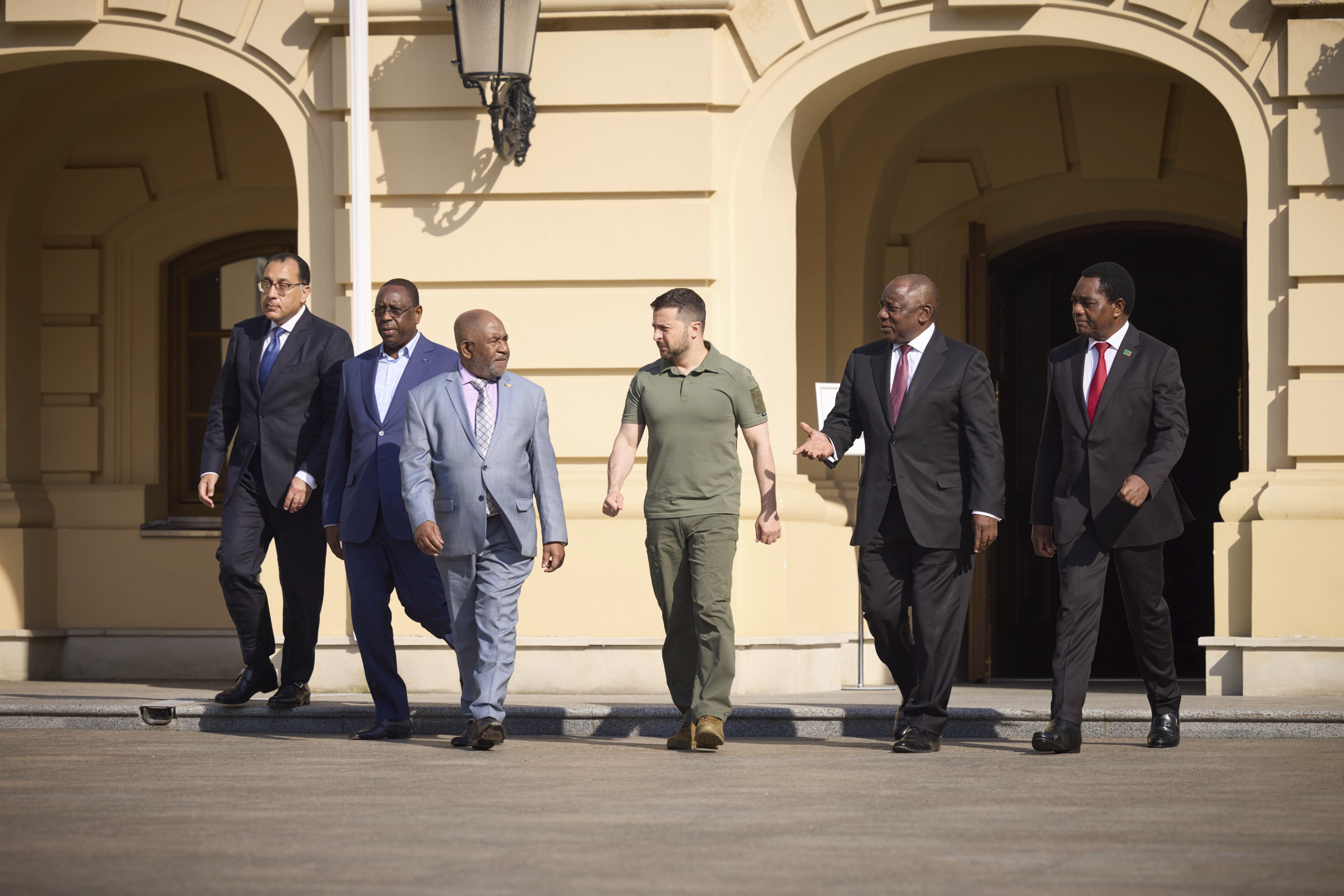
Kyiv intends to invest significant political capital to deepen ties with African countries, Ukraine’s Foreign Minister Dmytro Kuleba has said, in a bid to counter Moscow’s influence on the continent.
“We are starting from scratch in Africa. This continent needs systematic and long-term work. It’s not something that happens overnight,” Kuleba said in an interview with Agence French Presse on Wednesday in Kyiv.
The foreign minister compared Kyiv’s push to bolster ties with governments on the continent with a diplomatic “counteroffensive” against Russian efforts.
“Our strategy is not to replace Russia but to free Africa from Russia’s grip,” Kuleba said, adding that Ukraine wanted to approach those diplomatic interactions with “respect and with the principle of mutual benefit.”
This was in contrast to Russia’s approach, based on fighters from the Wagner mercenary group and “propaganda“.
“Russia is trying very hard to keep countries in its orbit through coercion, bribery and fear,” he said.
Russia and Ukraine woo Africa
Since Russia invaded Ukraine in February 2022, many African countries have remained publicly neutral and abstained from voting against Russia at United Nations meetings.
A quartet of African leaders led by South African President Cyril Ramaphosa conducted a trip to Russia and Ukraine in June as part of efforts to resolve the war between the nations.
The delegation put forward a 10-point plan that included sending prisoners of war and children back to their countries of origin and unimpeded grain exports through the Black Sea, but the effort is yet to yield any results.
Even before the war in Ukraine began, the Russian mercenary group Wagner had partnered with several African nations including Mali and the Central African Republic. Those relationships are yet to change, even though Wagner’s leader Yevgeny Prigozhin fell out with the authorities after trying to topple Russia’s senior military leadership.
The Kremlin has longstanding partnerships with several countries in Africa that date to the Soviet era, but Moscow has ramped up efforts to cement ties on the continent since becoming isolated from Western countries over the Ukraine war.
Russian President Vladimir Putin hosted representatives of 49 African countries, including 17 heads of state, for a summit in Saint Petersburg last month, in which they agreed to promote a multipolar world order and fight “neocolonialism”. He offered debt write-offs and grain to woo allies and claimed that, “Russia’s attention to Africa is steadily growing.”
Foreign Minister Sergey Lavrov toured Africa twice since January, seeking to draw it into Moscow’s camp and presenting Russia as a bulwark against Western “imperialism”.
But Ukraine has also been making efforts to woo African countries, in recent years having emerged as an alternative source to the West for weapons for countries on the continent fighting armed groups.
Last year, the African Union snubbed two attempts by Ukraine’s President Volodymyr Zelenskyy to address its heads of state.
Kuleba also said on Wednesday that Putin’s publicly voiced concerns about food security in Africa are baseless, given Moscow’s exit from the Black Sea grain deal last month.
The accord was brokered last year by the United Nations and Turkey and allowed about 33 million tonnes of grain to leave Ukrainian ports, helping to stabilise global food prices and avert shortages.
“People in Africa saw that all of Putin’s stories about how he cares about African countries are lies,” Kuleba said.
He described Ukrainian farmers and people in Africa depending on bread availability as the main victims of Moscow’s decision to end safe passage for cargo ships to and from Ukraine’s ports.
“Putin solves his own problems at the expense of Africans and Ukrainians,” Kuleba said.







